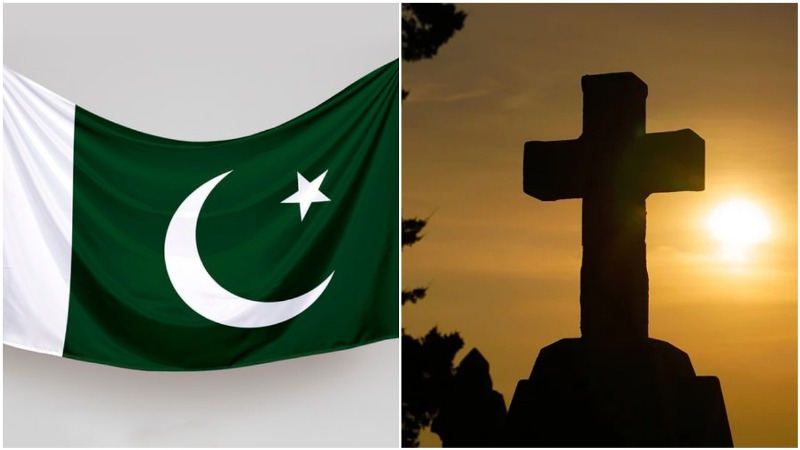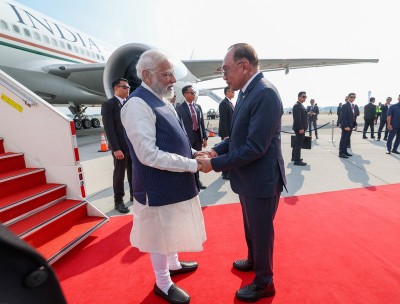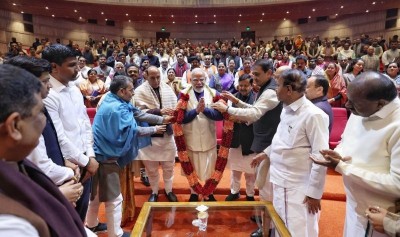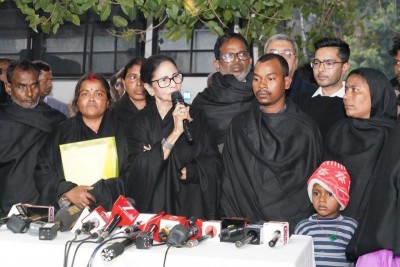 Pakistan
Pakistan
Pakistan: Organized Islamist groups targeting minorities
With organised Islamist groups pushing it, violence against religious minorities in Pakistan is increasingly moving beyond the local and spontaneous anger of the Muslims, media reports and probes by human rights bodies indicate.
Of these groups, Tehreek-e-Labbaik Pakistan (TLP) is seen as having consolidated during 2021-23 when politicians in and outside of the legislatures were fighting each other.
This worked in tandem with the Tehreek-e-Taliban Pakistan (TTP) operating, but partially, from across the border with Afghanistan, spreading its tentacles beyond its traditional tribal areas, into thickly populated plains of the heartland.
A detailed list of incidents over the last year compiled by Dawn newspaper (August 18, 2023) indicates the growing role of these groups who draw support from the local Muslim clergy and benefit from lax performances and the consequent connivance of the police and the lower courts.
Compiled by Areesha Rehan, Hawwa Fazal, and Wara Irfan, the timeline indicates that the precise number of cases and casualties matter less than the growing trend of the last few decades when Pakistan's minority communities have borne the brunt of mob brutality, bomb attacks, arson, cases of lynching and other forms of violence.
Minorities, mostly poor and unlettered, and even those mentally unstable, are targeted. They are more vulnerable than the Muslim majority to the misuse of the blasphemy law.
This was underscored by last week’s burning of five Christian churches at Jaranwala in the Faisalabad district of Punjab. It has been the abode of the Hindus and Sikhs.
Jaranwala is in the heart of what was once a hub of vibrant agrarian movement and political activity in pre-Partition India.
It is 72 km away from Bangay where Shahid Bhagat Singh was born. Academic Aasim Sajjad Akhtar, who teaches at Quaid-i-Azam University, Islamabad, writes (Dawn, August 18, 2023) that violence against minorities was then ‘unthinkable.’
He quotes Bhagat Singh: “If this land is divided in the name of faith, a tidal wave of hate so enormous will erupt that generations will be engulfed by it.” The present-day spread of “hateful, right-wing politics will ultimately engulf us all.”
Each incident of violence against minorities is followed by a familiar reaction. “There have been condemnations from various quarters, including leading Islamic scholars, and authorities have promised to bring the perpetrators to book. But we have been here before.”
The pattern is familiar, too. Unwilling to risk their own lives against the marauding mobs that could be in the hundreds, the local authorities remain passive. Then they take sides as they succumb to pressures from the attackers and the clergy. Cases of abduction of minor girls invariably get settled against the victims and their hapless families. Politicians condemn it and assure tough action, while the Foreign Office denies it all when it is condemned abroad.
Observes Dawn (August 21, 2023) in its editorial: “While discrimination against minorities does occur in other Muslim states, Pakistan is in a league of its own. One does not often hear of public lynching and frenzied mobs rampaging to avenge alleged blasphemy in Saudi Arabia, Iran, Egypt, etc — countries that are no less Muslim than Pakistan. This may be because in these countries the state does not allow vigilante groups or self-professed guardians of faith to rile up crowds and let them loose on hapless victims.”
In Pakistan, things are different. For decades, the state encouraged and later tolerated religious fanatics, while poverty and low literacy levels have left ordinary folk susceptible to the emotional messaging of such malign actors.
Security Analyst Muhammad Amir Rana underscores the role of the state and the politicians (Dawn August 20, 2023): “The state’s insistence on using religious groups to achieve its purposes has also contributed to this dilemma. By outsourcing its national project to sectarian groups, the state has given them a platform to promote their agendas, which often conflict with the common good. In order to address this dilemma, the state needs to stop exploiting religious groups for its purposes. It also needs to create a more inclusive and secular society where all people, regardless of their religious beliefs, can have a voice.”
Support Our Journalism
We cannot do without you.. your contribution supports unbiased journalism
IBNS is not driven by any ism- not wokeism, not racism, not skewed secularism, not hyper right-wing or left liberal ideals, nor by any hardline religious beliefs or hyper nationalism. We want to serve you good old objective news, as they are. We do not judge or preach. We let people decide for themselves. We only try to present factual and well-sourced news.







